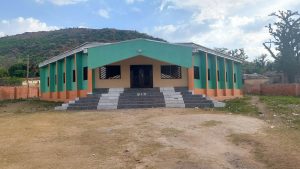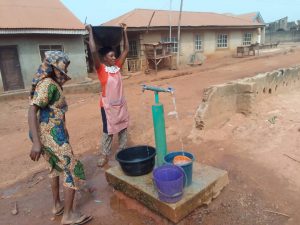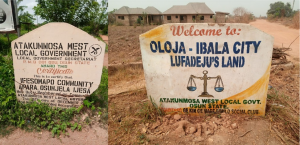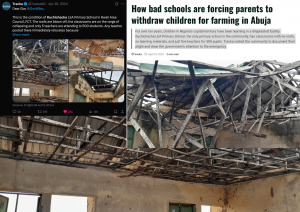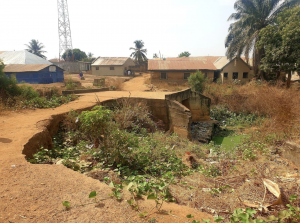BudgIT developed a comprehensive report based on the status of 2015 constituency projects in Nigeria; it revealed only 33% of the year’s budget got implemented.
The Tracka report uncovered the disparity between the number of stipulated and executed projects. The document covered a total of 436 projects and listed 211 of these as not implemented, 77 projects as ongoing and only 145 projects were reported as completed.
The report also highlighted common challenges with the 2015 constituency projects, stating that contract inflation, unspecified project locations, citizen’s lack of access to information about projects and over priced empowerment programs are the biggest causes of underdevelopment in the country.
In 2016, the Federal Government made a provision of N100 billion for Constitutional projects across states in the federation.
The distribution of this allocation corroborated the budget padding allegations raised against the Principal Officers in the National Assembly.
Typical instances we cited in Edo State, where a district, Edo North only got N2.85 billion from the entire N3.99 billion allocated to the state.
Also in Kogi, Kogi West received N1.84 billion while Kogi East and Central got N558 million and N480 million respectively.
A review of the provisions in Tracka focus states demonstrates the reoccurrence of some of the challenges stated in the 2015 report.
Tracka’s previous report broadcast details of contract inflation in the 2015 constituency projects. Sadly, this re-occurred in the zero-based 2016 budget, an instance is the construction of a solar powered borehole in Ondo North Senatorial district, Ondo state. The unusual and over priced cost of construction in Nigeria hampers development and makes the contractors the biggest beneficiaries of the developmental projects, rather than the people.
Also in Ondo state, we noted a construction of football field and perimeter fence at Christ School, Oka, Ondo North Senatorial district for N30 million. To the south, in Delta state, the fencing and security house at Alaka Grammar School, in Ozoro, Isoko North and South federal constituency, Delta state at N30 million.
As Nigeria operates its largest deficit in decades, the allocation of funds to public projects should remain cost viable. This project does not substantially address the destitution of the residents neither does it not reflect the present reality of our economic situation.
Also in Isoko North and South, Delta state, there is an N200 million provision for the maintenance of solar powered streetlights. General descriptions like this hinder citizen from tracking projects in their communities and shows disregard for the taxpayers and voters who put their leaders in power.
Possible duplication of a project is cited in Edo state, where the provision of equipment for women and children hospital in Otuo Owan East Local Government was captured in the Federal and State budgets for N200 million and N57 million respectively.
Another challenge noted in the report that reoccurred in the new year’s provision is the abuse or misuse of the term “empowerment programs.”
In 2015, we recorded the procurement of 13 pieces of Kia Saloon Car for Women Empowerment in Anaocha LGA, Anambra State at a cumulative cost of N65 million, stating that this provision does not automatically guarantee empowerment and the sum of N65 million for 13 women is not cost effective.
This year, there are multiple provisions labeled as empowerment program, which does not have a direct impact on the citizens and by their very nature are also highly prone to fraud as the disbursement is at the discretion of officials. A typical example is Gombe State, where advocacy, campaign and sensitization programs will engulf a whopping sum of over N225 million only.
The government must consider tangible support in the community such that will enable collective and socially inclusive growth.
At BudgIT, we believe the lack of access to information about public projects such as the construction of roads, schools, and clinics, etc. hampers development in the various constituencies.
Even as we have commenced the tracking of the 2016 constituency projects, this exercise is intricate due to the lack of transparency around project funds. Although the FG has released about N 332 billion to various ministries; power, works, housing, defense and security and others for developmental projects, but the process still falls short of the requirements of open government, which Nigeria recently joined.
The principle of open contracting must be prioritized to ensure public participation in contract awards.
Transparency entails that Government gives a breakdown of the amount invested in each project, the full details of the Contractor, name, address with contact information, government budget benchmark, terms of the agreement, bill of quantity, etc.) all these must be made available in the public domain.

